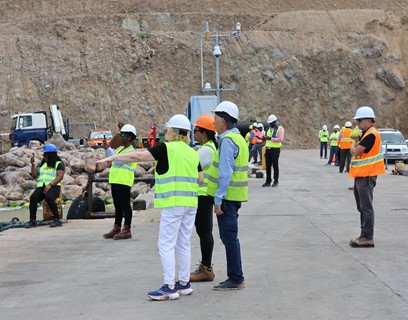
I have always been an admirer of US Secretary of State, Hillary Clinton. Perhaps in another article I will speak of my admiration for this woman whom I consider to be highly accomplished and an avalanche of strength. Today though, I wish to discuss Secretary Clinton's recently convened Global Diaspora Initiative aimed at examining the impact of diaspora communities on their adopted homes and also the role they play in the development of their countries of origin.
The Global Diaspora Forum took place from May 17th-19th under the auspices of the US State Department, USAID, The Migration Policy Institute and the U.S. Trade and Development Agency. Following the Forum via live internet streaming, a particular section of Secretary Clinton's speech I found most relevant.
In her remarks she said, ". it's not possible for any government, no matter how well meaning, to meet the challenges we face, from natural disasters, to economic stagnation, to poverty or civil unrest. Therefore, we need what I call smart power, and that means employing every tool at our disposal. I think building these coalitions, spurring initiative and innovation around the world, using people-to-people exchanges is actually the core of smart power. And that's where all of you [forum delegates] come in." I agree with Secretary Clinton and fully endorse the idea of 'smart power'.
Being a member of the Caribbean diaspora, my position has always been that the region's diaspora communities ought to and should be allowed to be joint stakeholders in the development of the Caribbean's island states. The unique social structure of the region's countries is such that migration and remittances have for years defined our socio-economic landscape. Looking at America on its own, as Secretary Clinton outlined in her speech, global remittances coming from America dwarf any foreign aid that the US Government can provide. She further went on to pose a very poignant question, "How do we better use that to support the kind of investments that will not only assist families but spread beyond families into communities?" The latest available figures from 2009 shows that US$48 billion in remittances have gone out from the United States alone. This actually was a decrease due to the global financial crisis.
I encountered a paper from the Inter-American Dialogue that shows that this 2009 figure marked for the first time, since the year 2000, that migrants sent less money home to Latin America and the Caribbean than the year before. Total remittance flows declined 15% after growing at an average annual rate of 17% in the preceding years.
Some Caribbean governments have realised the relevance of the diaspora and in places like Jamaica, Montserrat and St Lucia to name a few, they have set up departments within the structure of government to look into diaspora affairs. From observations though, I am prone to ask if Caribbean governments are doing enough to harness the full potential of its diaspora communities to impact development in the region? It is my belief that a Caribbean region connected with her diaspora by way of an information sharing system; somewhat of a two channelled approach, can bare fruit and help the region's economic prospects. I do not see remittances alone as being the only way the Caribbean's diaspora can contribute. The Diaspora can do more and invest in more tangible ways.
'Traders in Information' is a term I coined several years ago as it relates to the diaspora being involved in the happenings and development of the region. This view has led to MNI Alive.com in its current form as a marketing, networking & information portal for the global Caribbean community. The concept was essentially borne from the expressed notion that Caribbean people cannot be living abroad yet know and impact what happens in the region. I disagreed and set out to prove it can be done. MNI Alive.com (www.mnialive.com) thus, from its inception to its current form is about using information communication technology to connect Caribbean diasporas globally while also bringing information from the various territories of the region out to these communities. The fact that Secretary Clinton convened a Global Diaspora Forum affirms that she too sees the value of diasporas being encouraged to participate.
As a model of economic growth, I am one who gets slightly discomforted by the purely sun, sea and sand economic positioning of the region. I see the value of a tourism-based economy. It has served us well for years but as the global economic downturn has shown, tourism is dependent on many significant variables. While we seek to develop tourism further, we must also aim feverishly to diversify our economies towards positions of strength.
The world is now a village. New media and rapidly advancing technological developments in telecommunications impact the social, political and economic fabric of developed nations and now much more so, developing nations such as the Caribbean must now put forward strategies that seek to place the use of information communication technologies at the core of the remodelling and modernising of our economic structures.
Our people within the region and throughout the diaspora can benefit from a technology focused development strategy. Markets are no longer centralised and local. The world is now everyone's market place with the advent of high-speed connectivity and instant information sharing. So too, for the region, our markets now should be outside of our geographic boundaries. Here is where the region can adopt the concept of becoming 'traders in information' whereby information about key investment opportunities is fed to the diaspora in a professional, timely and inclusive manner. The season is ripe for innovation and a push towards an e-focussed entrepreneurial private sector.
The future is with information communication technologies and for the region not to be left too far behind, it will be up to the various governments to educate and inform their citizenry to subscribe to a new social renaissance that embraces the power of technology to further advance the region's development aims. Now that for me is smart power!
Photo Credit to CB Mun
Jeevan Robinson is Editor-in-Chief of MNI Alive. He can be reached at jeevan@mnialive.com


